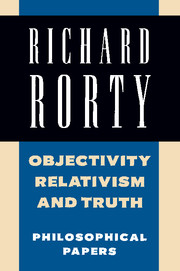Book contents
Unfamiliar noises: Hesse and Davidson on metaphor
Published online by Cambridge University Press: 05 June 2012
Summary
We speak of one thing being like some other thing, when what we are really craving to do is to describe something that is like nothing on earth.
Vladimir NabokovPhilosophers of science like Mary Hesse have helped us realize that metaphor is essential to scientific progress. This realization has encouraged Hesse and others to argue for ‘the cognitive claims of metaphor’. She is concerned to give metaphorical sentences truth and reference – to find worlds for them to be about; “imaginative symbolic worlds that have relations with natural reality other than those of predictive interest … utopias, fictional exposes of the moral features of this world by caricature and other means, and all kinds of myths symbolic of our understanding of nature, society and the gods’. Like many other philosophers of this century (e.g., Cassirer, Whitehead, Heidegger, Gadamer, Habermas, Goodman, Putnam) she sees over-attention to the natural sciences as having distorted modern philosophy. Following Habermas, Hesse sees cognition as wider than the satisfaction of our ‘technical interest’ and as extending to ‘the practical interest of personal communication and the emancipatory interest of critique of ideology’. In discourse which satisfies these interests, Hesse says, ‘metaphor remains the necessary mode of speech’. So she believes that metaphor ‘poses a radical challenge to contemporary philosophy’ and that we need ‘a revised ontology and theory of knowledge and truth’ in order to do justice to metaphor as an instrument of cognition.
- Type
- Chapter
- Information
- Objectivity, Relativism, and TruthPhilosophical Papers, pp. 162 - 172Publisher: Cambridge University PressPrint publication year: 1990
- 4
- Cited by



